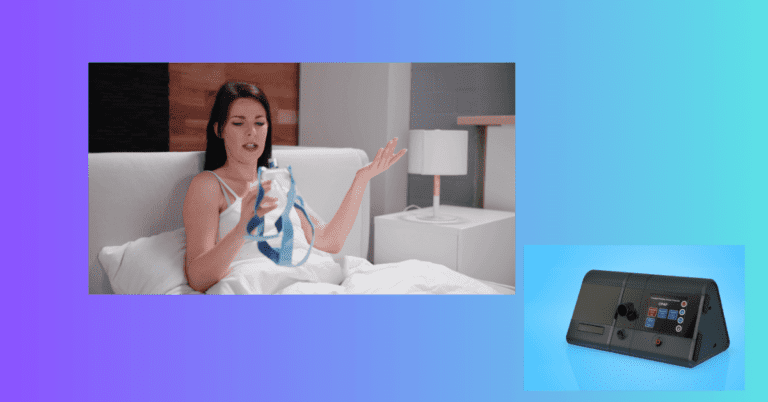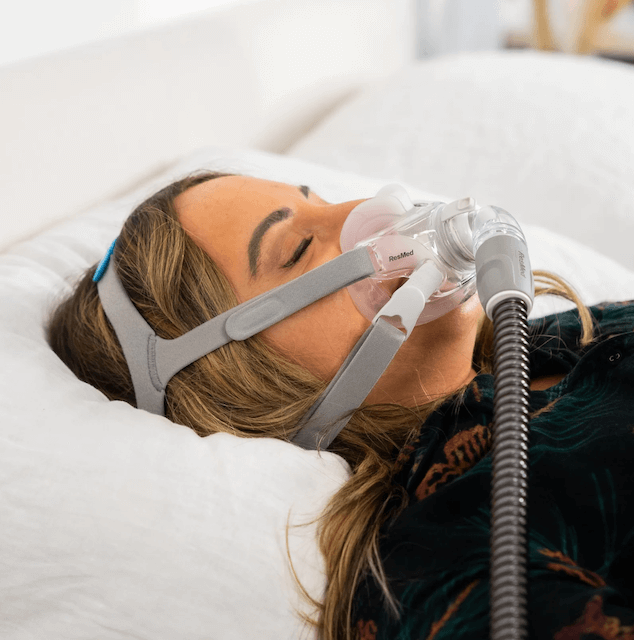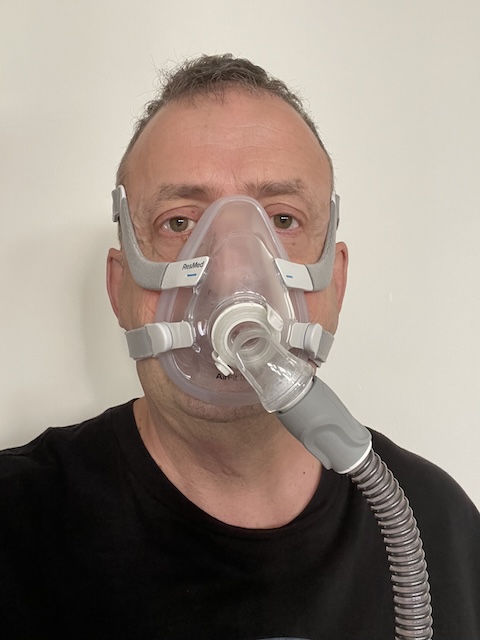What Is the Difference Between Nasal Pillow Mask and a Nasal Mask?
Jeremy Smith is a long-term CPAP user and sleep apnea advocate. After being diagnosed with severe obstructive sleep apnea, he created ByJeremySmith.com to help others navigate CPAP therapy through personal stories, gear reviews, and practical advice.
When starting CPAP therapy, choosing the right mask is essential to ensuring comfort and the effectiveness of the treatment.
Two popular options for CPAP users are nasal pillow masks and nasal masks, designed for those who primarily breathe through their nose during sleep. While both mask types are effective, they differ in design, fit, and overall experience.
I don’t use either. I used a full-face mask because I am often congested and must use my mouth when sleeping.
In this article, we’ll explore the key differences between nasal pillow masks and nasal masks to help you choose the best one for your needs.
This video from the cpap.com shop will explain the differences…
What Is a Nasal Pillow Mask?
A nasal pillow mask is the most minimal CPAP mask available. It consists of two small cushions (or “pillows”) that rest just under your nostrils, delivering airflow directly into your nasal passages. The mask’s headgear is lightweight and makes minimal contact with your face.
Pros of Nasal Pillow Masks:
- Minimal Contact: Nasal pillow masks are ideal for people who don’t like bulky masks. They barely touch your face, making them less intrusive.
- Great for Side Sleepers: Since nasal pillows don’t cover much of the face, they’re perfect for side sleepers, as there’s less risk of the mask shifting during the night.
- Clear Field of Vision: With minimal headgear, you’ll have an unobstructed field of vision, which is excellent if you like to read or watch TV before bed.
- Works Well with Facial Hair: Nasal pillow masks are a good option for those with beards or mustaches, as they don’t interfere with facial hair.
Cons of Nasal Pillow Masks:
- Not Ideal for Higher Pressures: If you require higher air pressure to treat your sleep apnea, nasal pillows may feel too direct, causing discomfort or irritation.
- Nasal Irritation: Due to the direct airflow into your nostrils, some users experience dryness or irritation in their nose.
- Not Suitable for Mouth Breathers: Nasal pillow masks are best for nose breathers. If you tend to breathe through your mouth while sleeping, you may need a chin strap or a different mask style.
What Is a Nasal Mask?
A nasal mask covers the nose entirely and rests on the bridge of your nose, delivering airflow into your nasal passages. It provides more coverage than nasal pillows but less than a full-face mask. Nasal masks come in various sizes to fit different facial structures, making them a versatile option for many users.
Pros of Nasal Masks:
- Stable and Secure Fit: Nasal masks generally offer a more secure fit than nasal pillows, which can help prevent air leaks.
- Suitable for Moderate to Higher Air Pressures: If you require moderate to high air pressure settings, a nasal mask distributes the airflow more evenly than nasal pillows, making it more comfortable.
- Works for Active Sleepers: Since nasal masks provide more coverage, they tend to stay in place better for those who toss and turn during the night.
Cons of Nasal Masks:
- More Facial Contact: Nasal masks cover more of your face than nasal pillow masks, which might feel bulky to some users.
- Can Cause Nasal Congestion: Some users experience nasal congestion or dryness, especially if the mask isn’t appropriately humidified.
- Not Ideal for Mouth Breathers: Nasal masks, like nasal pillow masks, work best for nose breathers. If you tend to breathe through your mouth, you may need a chin strap to keep your mouth closed.
Key Differences Between Nasal Pillow Masks and Nasal Masks
1. Contact with the Face
- Nasal Pillow Masks: Minimal contact with your face, providing a lightweight, unobtrusive fit.
- Nasal Masks: These provide More facial coverage, which can feel more secure and bulkier.
2. Air Pressure Compatibility
- Nasal Pillow Masks are best for those who require lower air pressure. Higher pressures can cause discomfort or nasal irritation.
- Nasal Masks: Can handle moderate to higher air pressures, making them more versatile for different treatment needs.
3. Fit and Comfort
- Nasal Pillow Masks: Suited for people who want a less intrusive mask with minimal straps and headgear.
- Nasal Masks: Provide a snug, secure fit, making them ideal for active sleepers or those who want a mask that stays in place throughout the night.
4. Breathing Style
- Nasal Pillow Masks: Best for nose breathers who don’t experience frequent nasal congestion.
- Nasal Masks are also for nose-breathing people but offer better support for those with mild nasal congestion, as they deliver air more evenly.
Which Mask Is Right for You?
Choosing between a nasal pillow mask and a nasal mask depends on your personal comfort preferences and specific CPAP therapy needs.
- If you prefer minimal contact with your face, are a side sleeper, or have facial hair, a nasal pillow mask might be the better option.
- A nasal mask could be the right fit if you need a mask that can handle higher air pressure, want more stability during sleep, or experience mild nasal congestion.
It’s worth trying both types of masks to see which one feels most comfortable for you. As with any CPAP mask, a proper fit is key to ensuring a good seal, preventing air leaks, and improving the overall effectiveness of your treatment.
Conclusion: Finding the Best CPAP Mask for Your Needs
Both nasal pillow masks and nasal masks have their unique advantages. Nasal pillow masks offer a lightweight, minimalistic option for those who want less facial contact and a wide field of vision. On the other hand, nasal masks provide more coverage and stability, making them a better choice for those who need higher pressure settings or prefer a more secure fit.
Choosing the right CPAP mask may take some trial and error, but finding the one that fits your lifestyle and treatment needs will make a difference in your sleep quality and overall health.
Disclaimer: The content on this blog is for informational and educational purposes only and is not a substitute for professional medical advice. Always speak with your doctor or sleep specialist before starting, stopping, or changing any treatment or therapy related to sleep apnea or CPAP use.





